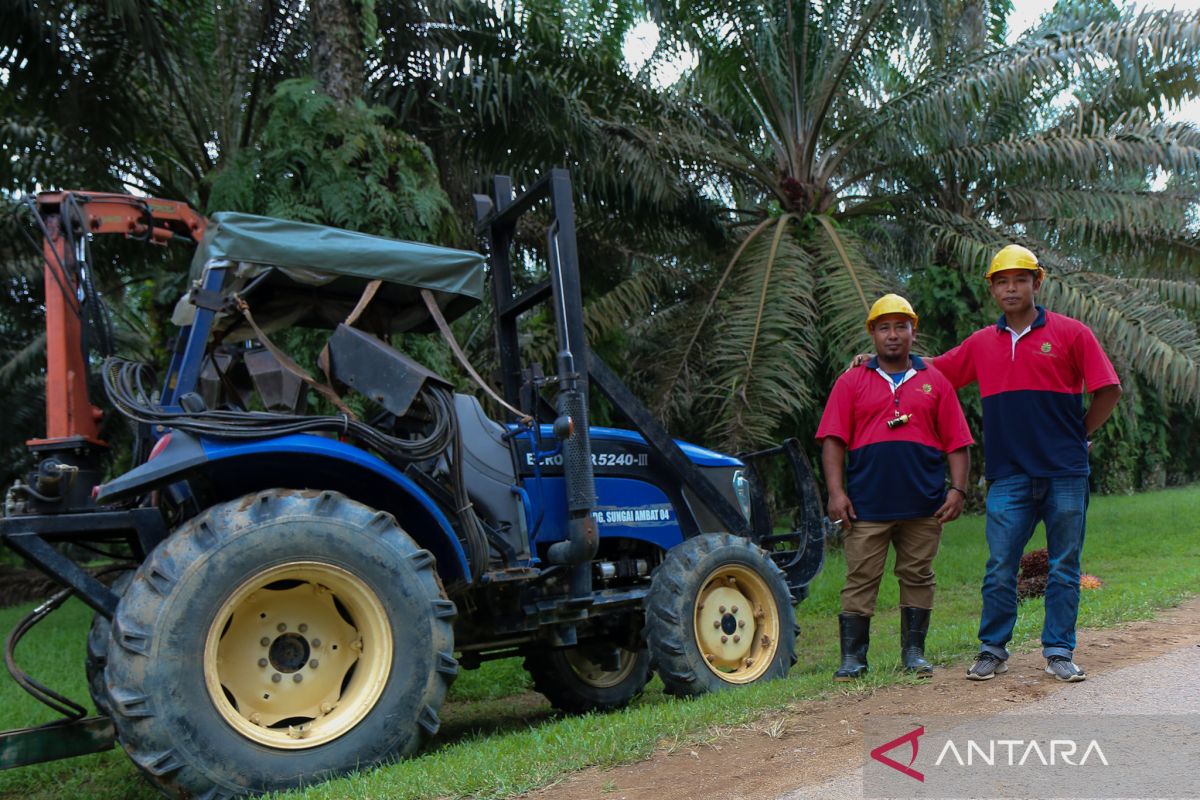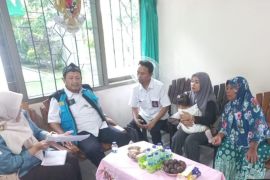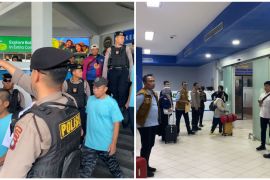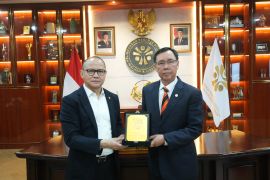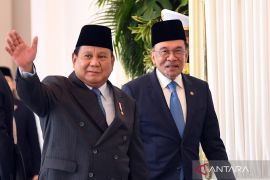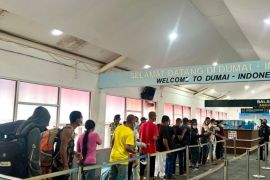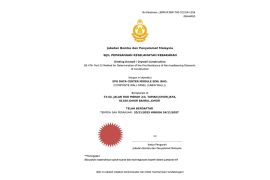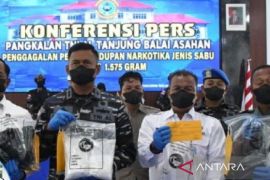If confused or unsure, ask the National Migrant Workers Protection Agency or Workforce and Transmigration Office. Every district and city (office will answer) those inquiriesKuala Lumpur, Malaysia (ANTARA) - The COVID-19 pandemic has had some serious impacts on all countries, with many restrictive policies put in place to fight the spread of the virus.
One such policy was implemented by the Malaysian government on August 31, 2020, when it decided to close its doors to migrant workers from some countries, including Indonesia.
However, as the situation saw some improvement, Malaysia once again started welcoming migrant workers, particularly in the plantation sector, as it had become a necessity to ensure the continuity of the palm oil industry in that country.
Indonesia responded well to the news. In 2022, 150 migrant workers from West Nusa Tenggara made their way to Malaysia. Their schedule had been delayed by three years.
The governor of West Nusa Tenggara paid the utmost attention to their departure. He gave directives to the local Workforce and Transmigration Office to check up on those who worked in Malaysia.
Among the workers’ destinations—reviewed by the National Migrant Workers Association and a representative of West Nusa Tenggara's House of Representatives—was a well-known palm oil company called Sime Darby Plantation.
Related news: Malaysia seeks quick resolution to manpower MoU issue with Indonesia
Besides reviewing the facilities and migrant workers' activities, they heard stories from many of those who worked overseas and never once set foot in Indonesia after COVID-19 struck.
One such story was related by Aweng, a man from Kuripan, West Lombok, who claimed to have worked on the plantation for four years.
"I gather the oil palm fruits," he said, introducing himself.
Ever since he started working in the neighboring country, Aweng, who is not even 21 years old, said he has never once returned home—which is why he misses home so much.
Aweng is planning to wrap up his work in Malaysia next year. "Maybe after Eid next year, I will return home," he said.
Working in another country at such a young age led him to think about the future, as well as plan for a decent life.
His efforts as a worker at a palm oil plantation were not in vain, especially considering that he was working with Sime Darby Plantation, a well-recognized company that manages at least 600 thousand hectares of land.
He managed to amass a good amount of money in Malaysia, which he invested in his future.
Related news: Indonesia stops sending migrant workers to Malaysia over MoU violation
"Thank God, the money I get I always send it back (to my family). I have bought cows, land, and started up a business with my elder sibling," he informed.
The investments were made while he worked for four years at Sime Darby Plantation, picking oil palm fruits, he said.
In just a month, he managed to make as much as tens of millions of rupiahs. It was more than enough for Aweng, who was still young.
“Now, (I) get 4 thousand RM (Malaysian Ringgit)," he said.
He still considers the amount to be small compared to fellow workers who are employed as overseers or drivers for transporting fruits.
Sibawaeh, another migrant worker from Kopang, Central Lombok, has been working at an oil palm plantation owned by Ladang Berhad Cooperatives, Malaysia. He is married with three children.
He gets paid daily as a driver delivering oil palm fruits, making 40 RM per trip. In a day, he manages to make five trips.
His story is not much different from Awaeng's, as he manages his salary from the job in Malaysia well. He is working to pay for a decent life in Lombok.
"I look for capital, wife back at home develops it," he said.
He said he feels that three years working in the field has been enough. Although he is comfortable working there, he has made up his mind to return to Indonesia next year.
"That's enough. I want to go home, in about five months. Take care of the land I bought. Help wife sell staple items, too," he informed.
The stories of Aweng and Sibawaeh paint a picture of migrant workers in Malaysia who work in the typical way, their salary depending on the company's productivity.
Related news: Indonesia temporarily stops sending workers to Malaysia: ambassador
Preventing exploitation
Citing the stories of the two Lombok migrant workers, head of the National Migrant Workers Association, Muazzim Akbar, urged prospective migrant workers or those who are already working overseas to follow in Aweng and Sibawaeh’s footsteps.
"Leave procedurally, return with capital," Akbar said.
He reminded the migrant workers of many things, like an elder imparting wisdom to nomads in other people's lands.
"Do not run, haunt the working place. If you run away, you will automatically become illegal migrant workers, blacklisted, no longer able to get into Malaysia," he said.
If there is a problem, it is best to discuss it with a superior. Ask for the best solution so that the problem can be resolved without having to leave the workplace, according to him.
Head of the West Nusa Tenggara Workforce and Transmigration Office, I Gede Putu Aryadi, said he expected workers to be selective in choosing companies participating in the national migrant workers placement (P3MI).
"If confused or unsure, ask the National Migrant Workers Protection Agency or Workforce and Transmigration Office. Every district and city (office will answer) those inquiries," Aryadi added.
The two institutions have extensive information, he said, Prospective migrant workers could also ask for documents to complete the requirements for working overseas.
"There, (you) can get information about the recruiter. (Find out which company) Needs how many workers, what sector, who is the agency--all (of this information) exists," he added.
It is part of the government's efforts to prevent more migrant workers from becoming victims of exploitation overseas, he pointed out.
“So, for agencies now, who have a center, should they wish to recruit on a regional level, must also have a branch office in the region. No more they may (conduct recruitment) with only recruitment permit in hand," he added.
Related news: Taiwan to raise wage for PMIs in domestic sector: BP2MI
Firm response
The state's efforts to improve the procedure for migrant workers’ placement and protection abroad, especially in Malaysia, have continued to show good progress.
This can be seen from the memorandum of understanding (MoU) signed by Indonesia and Malaysia on April 1, 2022, which regulates migrant workers' placement and protection, especially in the domestic sector.
In the MoU, the two countries agreed to use the One Channel System starting from the process of placement, monitoring, to the return of migrant workers.
The system provides easy, one-stop services for national migrant worker placement companies (P3MI) and Malaysian companies recruiting migrant workers. The provision of services is adjusted to the regulations in both countries.
Under the agreement, migrant workers have also been included in Malaysia's employment insurance scheme for foreign workers and health insurance for which the premium would be paid by their employers.
Indonesian representatives in Malaysia have also been authorized to set the minimum wage for migrant workers, which is RM1,500 or around Rp5.1 million currently, while the minimum income of prospective employers has been set at RM7 thousand or around Rp23 million.
Related news: Minister deploys 150 professional nurses to work in Saudi Arabia
The agreement also regulates the right to annual leave, the right to communicate, and prohibits the withholding of workers’ passports.
However, Indonesia has temporarily stopped sending migrant workers to Malaysia over the MoU's violation.
The violation pertains to the discovery of an advertisement seeking domestic workers posted on social media by an agent in Malaysia who was not registered with the OCS.
On April 13, Indonesia took a firm stand by announcing it will not send migrant workers until Malaysia commits to stop recruiting domestic workers through the Online Maid System (SMO).
However, the Indonesian government said that recruitment orders which had been already approved could still proceed.
Related news: KSP to help find solution to migrant workers departure issues
Related news: Government loan helps migrant workers prepare for work: BP2MI
Editor: Fardah Assegaf
Copyright © ANTARA 2022
